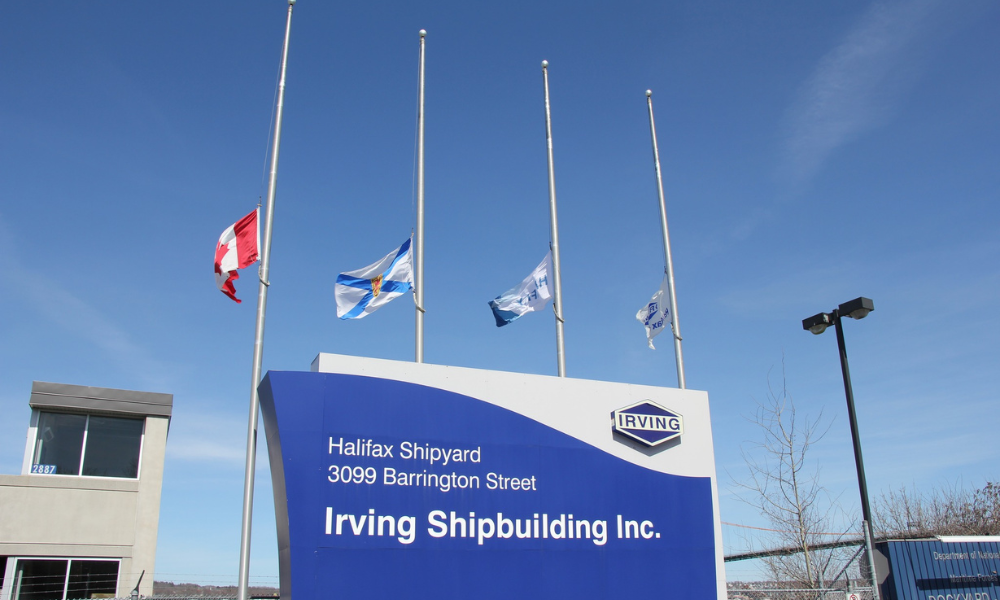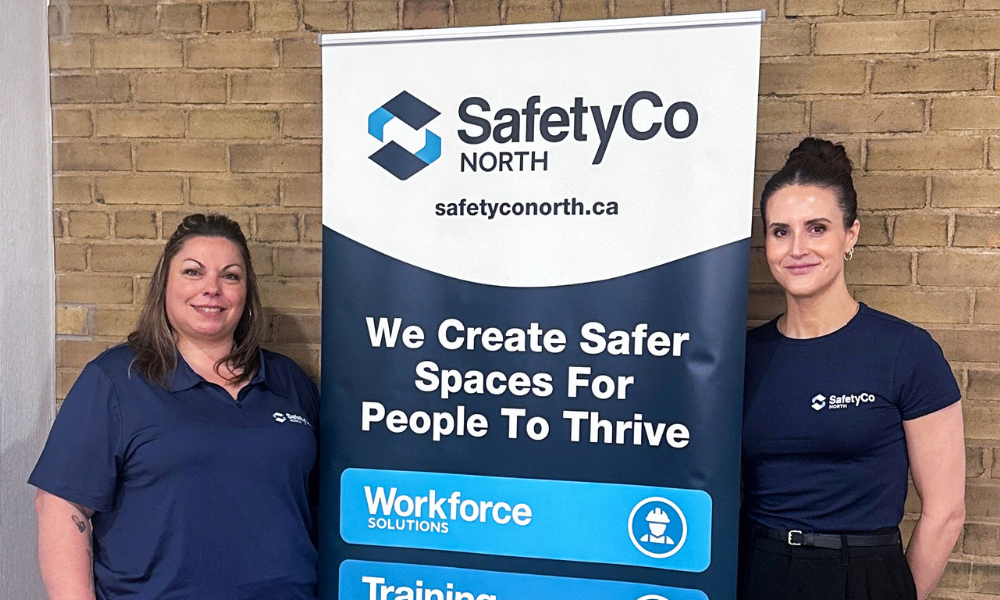IBM, Procter & Gamble and General Mills head the 2009 list of Global Top Companies for Leaders, a comprehensive study of organizational leadership around the world. In addition, one Canadian company, Scotiabank, has been named to the study’s Special Recognition list-a small number of North American organizations designated as companies to watch. These organizations have distinguished themselves in their progress, commitment and innovation in delivering on the leadership agenda.
The Global Top Companies for Leaders is sponsored by Hewitt Associates, a global consulting and outsourcing company, in partnership with The RBL Group, a strategic HR and leadership systems advisory firm, and Fortune. This year’s winners were selected and ranked by an expert panel of independent judges based on criteria including strength of leadership practices and culture, examples of leader development on a global scale, impact of leadership to communities in which they operate, business performance, and company reputation. The 2009 list can be found on Fortune.com and will appear in the December 7 issue of Fortune magazine.
“While Scotiabank may not yet be a top company in every leadership category, it is clearly on the move,” says Andrée Mercier, a principal in Hewitt’s Montreal office. “The judging panel created a special recognition category to highlight the achievements to date of Scotiabank and other ‘companies to watch’ and encourage their continued efforts.”
When comparing the Global top companies with more than 500 companies around the world, Hewitt identified one distinguishing characteristic that sets them apart from their peers-even during the economic downturn, Global top companies remained committed to building leadership capability within their organizations. In other words, tighter budgets and fewer resources forced these organizations to think and act smarter and more creatively about what really mattered when it came to leadership-but they didn’t lose focus.
“Strong leadership is a critical element in helping global companies successfully compete, yet many organizations lack the know-how and infrastructure for creating a robust pipeline of leaders for future success. Simply put, they lack the discipline to build leaders,” says Robert Gandossy, head of Hewitt’s global leadership consulting practice. “Our research and experience tells us that while leadership talent is in short supply around the world, the global top companies for leaders are still able to groom a near-constant supply of world-class leaders ... year after year and regardless of economic conditions. This capability gives them a unique advantage over their competitors and will position them to emerge stronger-and more quickly-out of the economic downturn.”
“The quality of the leadership within a company helps meet the expectations of investors, customers and employees, and sets the stage for growth,” says Norm Smallwood, co-founder of The RBL Group. “So developing the next generation of effective leaders is perhaps the most important undertaking of a forward-thinking company. The global top companies for leaders understand the urgency of a robust leadership culture and are learning to master how to build and sustain one.”
Since the study’s inception in 2002, Hewitt has identified a set of standard leadership characteristics embodied by companies that possess a winning leadership culture, including the 2009 Top Companies for Leaders. Leaders at these organizations are passionate and committed. Their leadership programs are practical, relevant and aligned with business goals. Top Companies have an intense focus on talent, and they are deliberate about who they hire, who they coach, who they promote, and who they reward. Finally, leadership development at these organizations is an institutionalized practice and mindset.
In addition to this standard set of leadership traits, Hewitt’s research identified four other critical areas that set the 2009 top companies apart from other companies around the world:
Leadership remains a critical priority-in good or bad economic times. According to Hewitt’s research, all companies ranked cost pressure as the single most pressing challenge over the next three years. Stabilizing cash and debt positions and balancing immediate cost pressures with long-term growth were key priorities in 2009, and they will remain a top priority as the global economy begins to recover. However, global top companies also plan to have an intense focus on ensuring they do not abandon key leadership and talent efforts in favour of shortsighted goals. As A.G. Lafley, chairman of the board at global top companies winner Procter & Gamble, explains, “All the value we create comes from our people-that doesn’t change if we are in a recession or if we are growing rapidly.”
Succession planning is deliberate and consistent. All global top companies have a formal succession planning process in place, compared to only 72 per cent of all other companies. Almost all (95 per cent) have developed succession plans specific to the CEO or an emergency plan, compared to just under two-thirds (63 per cent) of all other companies. Succession plans at global top companies are also more likely to offer specific elements to ensure the capabilities and depth of their pipelines are strong. Eighty-four per cent of global top companies identify a leader’s current performance against his/her future potential, compared to just 64 per cent of all other companies. In addition, 88 per cent offer 360-degree feedback, compared to just over half (56 per cent) of all other companies.
Leaders clearly understand what is expected of them as leaders. Leaders at the global top companies understand what is expected of them and are held accountable for their actions. Seventy-two per cent of global top companies rate the ability to effectively develop other leaders as one of the top five leadership skills most critical to their firm’s success, compared to just 39 per cent of other companies. More than three-quarters (76 per cent) also rate “demonstrating company missions and values” as one of the top five most important factors in determining strong leadership performance, compared to 57 per cent of all other companies.
“IBM is a company that has succeeded in having its leaders take responsibility for assessing talent, engaging talent in ‘what’s next’ conversations and looking at moving talent across lines, businesses, geographies, and functions. We think deeply about our leaders of tomorrow,” says Ted Hoff, vice president, IBM Center for Learning and Development.
Developing the next generation of leaders is a priority. Hewitt’s research shows that global top companies recognize that the ability to attract, assess and develop leaders across roles, functions and geographies is a necessary and differentiating strategy. All Global Top Companies formally identify high-potential talent, compared to 68 per cent for all other companies. All of them also have formal processes for developing leaders (compared to 77 per cent of other companies), and use leaders as teachers and mentors (compared to 55 per cent of all other companies) in these efforts. As a result, 96 per cent of Global Top Companies say they are attracting the quality leadership talent they need to be successful, compared to just 65 per cent of all other companies.
As Dr. John C. Lechleiter, chief executive officer of Global Top Companies for Leaders winner Eli Lilly, notes, "There were a lot of people here to help us win the last war, but we need to develop people to win the next war-all the while continuing to ground ourselves in the company's values. We take the long view in respect to people development; we still talk to people about building careers here.”
For more information, please visit www.hewitt.com/canada.
The Global Top Companies for Leaders is sponsored by Hewitt Associates, a global consulting and outsourcing company, in partnership with The RBL Group, a strategic HR and leadership systems advisory firm, and Fortune. This year’s winners were selected and ranked by an expert panel of independent judges based on criteria including strength of leadership practices and culture, examples of leader development on a global scale, impact of leadership to communities in which they operate, business performance, and company reputation. The 2009 list can be found on Fortune.com and will appear in the December 7 issue of Fortune magazine.
“While Scotiabank may not yet be a top company in every leadership category, it is clearly on the move,” says Andrée Mercier, a principal in Hewitt’s Montreal office. “The judging panel created a special recognition category to highlight the achievements to date of Scotiabank and other ‘companies to watch’ and encourage their continued efforts.”
When comparing the Global top companies with more than 500 companies around the world, Hewitt identified one distinguishing characteristic that sets them apart from their peers-even during the economic downturn, Global top companies remained committed to building leadership capability within their organizations. In other words, tighter budgets and fewer resources forced these organizations to think and act smarter and more creatively about what really mattered when it came to leadership-but they didn’t lose focus.
“Strong leadership is a critical element in helping global companies successfully compete, yet many organizations lack the know-how and infrastructure for creating a robust pipeline of leaders for future success. Simply put, they lack the discipline to build leaders,” says Robert Gandossy, head of Hewitt’s global leadership consulting practice. “Our research and experience tells us that while leadership talent is in short supply around the world, the global top companies for leaders are still able to groom a near-constant supply of world-class leaders ... year after year and regardless of economic conditions. This capability gives them a unique advantage over their competitors and will position them to emerge stronger-and more quickly-out of the economic downturn.”
“The quality of the leadership within a company helps meet the expectations of investors, customers and employees, and sets the stage for growth,” says Norm Smallwood, co-founder of The RBL Group. “So developing the next generation of effective leaders is perhaps the most important undertaking of a forward-thinking company. The global top companies for leaders understand the urgency of a robust leadership culture and are learning to master how to build and sustain one.”
Since the study’s inception in 2002, Hewitt has identified a set of standard leadership characteristics embodied by companies that possess a winning leadership culture, including the 2009 Top Companies for Leaders. Leaders at these organizations are passionate and committed. Their leadership programs are practical, relevant and aligned with business goals. Top Companies have an intense focus on talent, and they are deliberate about who they hire, who they coach, who they promote, and who they reward. Finally, leadership development at these organizations is an institutionalized practice and mindset.
In addition to this standard set of leadership traits, Hewitt’s research identified four other critical areas that set the 2009 top companies apart from other companies around the world:
Leadership remains a critical priority-in good or bad economic times. According to Hewitt’s research, all companies ranked cost pressure as the single most pressing challenge over the next three years. Stabilizing cash and debt positions and balancing immediate cost pressures with long-term growth were key priorities in 2009, and they will remain a top priority as the global economy begins to recover. However, global top companies also plan to have an intense focus on ensuring they do not abandon key leadership and talent efforts in favour of shortsighted goals. As A.G. Lafley, chairman of the board at global top companies winner Procter & Gamble, explains, “All the value we create comes from our people-that doesn’t change if we are in a recession or if we are growing rapidly.”
Succession planning is deliberate and consistent. All global top companies have a formal succession planning process in place, compared to only 72 per cent of all other companies. Almost all (95 per cent) have developed succession plans specific to the CEO or an emergency plan, compared to just under two-thirds (63 per cent) of all other companies. Succession plans at global top companies are also more likely to offer specific elements to ensure the capabilities and depth of their pipelines are strong. Eighty-four per cent of global top companies identify a leader’s current performance against his/her future potential, compared to just 64 per cent of all other companies. In addition, 88 per cent offer 360-degree feedback, compared to just over half (56 per cent) of all other companies.
Leaders clearly understand what is expected of them as leaders. Leaders at the global top companies understand what is expected of them and are held accountable for their actions. Seventy-two per cent of global top companies rate the ability to effectively develop other leaders as one of the top five leadership skills most critical to their firm’s success, compared to just 39 per cent of other companies. More than three-quarters (76 per cent) also rate “demonstrating company missions and values” as one of the top five most important factors in determining strong leadership performance, compared to 57 per cent of all other companies.
“IBM is a company that has succeeded in having its leaders take responsibility for assessing talent, engaging talent in ‘what’s next’ conversations and looking at moving talent across lines, businesses, geographies, and functions. We think deeply about our leaders of tomorrow,” says Ted Hoff, vice president, IBM Center for Learning and Development.
Developing the next generation of leaders is a priority. Hewitt’s research shows that global top companies recognize that the ability to attract, assess and develop leaders across roles, functions and geographies is a necessary and differentiating strategy. All Global Top Companies formally identify high-potential talent, compared to 68 per cent for all other companies. All of them also have formal processes for developing leaders (compared to 77 per cent of other companies), and use leaders as teachers and mentors (compared to 55 per cent of all other companies) in these efforts. As a result, 96 per cent of Global Top Companies say they are attracting the quality leadership talent they need to be successful, compared to just 65 per cent of all other companies.
As Dr. John C. Lechleiter, chief executive officer of Global Top Companies for Leaders winner Eli Lilly, notes, "There were a lot of people here to help us win the last war, but we need to develop people to win the next war-all the while continuing to ground ourselves in the company's values. We take the long view in respect to people development; we still talk to people about building careers here.”
For more information, please visit www.hewitt.com/canada.





